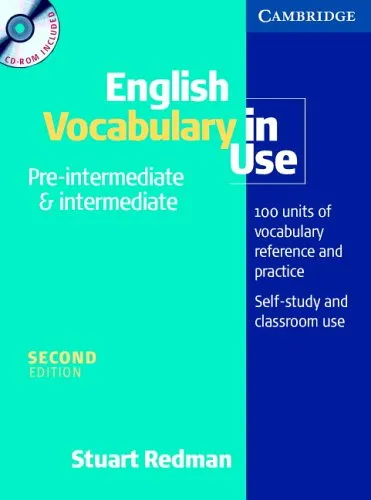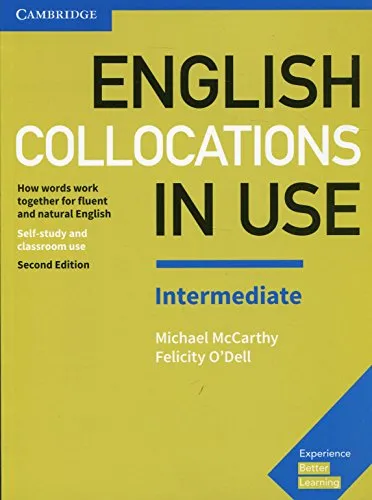Greek-English Lexicon of the New Testament: Based on Semantic Domains
5.0
بر اساس نظر کاربران

شما میتونید سوالاتتون در باره کتاب رو از هوش مصنوعیش بعد از ورود بپرسید
هر دانلود یا پرسش از هوش مصنوعی 2 امتیاز لازم دارد، برای بدست آوردن امتیاز رایگان، به صفحه ی راهنمای امتیازات سر بزنید و یک سری کار ارزشمند انجام بدینکتاب های مرتبط:
خلاصه تحلیلی کتاب
کتاب Greek-English Lexicon of the New Testament: Based on Semantic Domains یکی از جامعترین منابع واژهنامهای برای مطالعه زبان یونانی عهد جدید است که توسط J. P. Louw و Eugene Albert Nida تألیف شده است. این اثر، برخلاف لغتنامههای سنتی که ترتیب الفبایی را معیار قرار میدهند، از رویکرد Semantic Domains بهره میبرد. این رویکرد، واژگان را براساس ارتباط معنایی دستهبندی کرده و بدین ترتیب، مسیر فهم دقیقتر مفاهیم و کاربردهای کلمات را هموار میسازد.
مزیت بنیادی این ساختار آن است که خواننده و پژوهشگر میتواند واژههای مرتبط را در یک حوزه معنایی مشاهده و بافت آنها را بهتر درک کند. این ویژگی، اهمیت ویژهای برای مطالعات الهیات، تحلیل گفتمان و نقد متن دارد. حتی اگر سال انتشار دقیق این کتاب اطلاعات نامشخص باشد (منبع معتبر در دسترس نیست)، اهمیت آن در میان آثار مرجع زبانشناسی کتاب مقدس تردیدناپذیر است.
به دلیل چینش مبتنی بر مفهوم، این کتاب نه تنها برای زبانشناسان، بلکه برای مترجمان، الهیدانان و پژوهشگران متون مذهبی ارزشمند است. هر بخش، مثالها و توضیحات کاربردی ارائه میدهد که درک واژه را در بافت فرهنگی و تاریخی آن تسهیل میکند.
نکات کلیدی و کاربردی
یکی از نکات مهم کتاب، شکستن مرزهای سنتی لغتنامهنویسی است. رویکرد Semantic Domains به جای ارائه صرف معنای اولیه هر واژه، شبکهای از معانی مرتبط را بازسازی میکند که کمک میکند خواننده به تصویری کاملتر از معنای واژگان دست یابد.
این کتاب برای دانشجویانی که تازه ورود به مطالعه زبان یونانی عهد جدید کردهاند و همچنین برای محققان باسابقه مفید است. در واقع، میتوان آن را پلی دانست میان مطالعه آکادمیک زبان و فهم معنوی متن مقدس.
علاوه بر این، قابل استفاده بودن آن در پروژههای ترجمه بینالمللی یکی دیگر از کاربردهای کلیدی است؛ بهویژه برای کسانی که به دنبال انتقال دقیق معنا در زمینههای بینفرهنگی هستند.
نقلقولهای ماندگار
هرچند این کتاب بیشتر یک مرجع علمی است تا مجموعهای ادبی، در خلال توضیحات نویسندگان، جملاتی یافت میشود که بیانگر عمق نگاه آنان به زبان، معنا و متن مقدس است.
نمونه چنین جملاتی نه تنها برای زبانشناس، بلکه برای هر پژوهشگر متن معنوی الهامبخش خواهد بود.
«درک یک واژه، درک جهانبینی حامل آن است.» نامشخص
«واژهها تنها نشانه نیستند؛ آنها حاملان تاریخ، فرهنگ و ایمان هستند.» نامشخص
چرا این کتاب اهمیت دارد
اهمیت Greek-English Lexicon of the New Testament: Based on Semantic Domains در این است که با رویکردی نوین، پلی میان مطالعات زبانی و الهیاتی ایجاد کرده است. برای محققان، این کتاب نه تنها ابزاری برای یافتن معانی واژگان، بلکه راهنمایی برای درک ارتباطات معنایی میان آنهاست.
از نگاه کسانی که به دنبال فهم عمیقتر متن مقدس هستند، این کتاب ابزار بیبدیلی است. دانشپژوهان میتوانند با استفاده از آن از سطح واژگان گذر کرده و به لایههای عمیقتر مفهوم و زمینه برسند.
همچنین، رویکرد Semantic Domains به ایجاد درک مشترک در پروژههای ترجمه بینفرهنگی کمک شایانی میکند، چرا که ساختار معنایی زبان را فراتر از ترجمه لغوی آشکار میسازد.
نتیجهگیری الهامبخش
کتاب Greek-English Lexicon of the New Testament: Based on Semantic Domains بیش از آنکه یک واژهنامه باشد، دریچهای به جهان معناست. این اثر به ما یادآوری میکند که زبان، یک شبکه پیچیده از مفاه
Analytical Summary
The Greek-English Lexicon of the New Testament: Based on Semantic Domains stands as a landmark achievement in biblical studies, offering scholars, translators, and theologians a meticulously structured tool for understanding the Greek of the New Testament. Crafted by J. P. Louw and Eugene Albert Nida, this work revolutionizes lexicography by organizing vocabulary according to semantic fields rather than traditional alphabetical listings.
Rather than simply displaying words in isolation, the Lexicon groups them by meaning and conceptual relationships, enabling readers to see how linguistic elements interact within a given historical and theological context. This method provides greater insight into the intent and nuance of New Testament authors, helping users uncover layers of meaning often obscured by direct translation approaches.
The work is designed for serious readers—academics, clergy, translators, and advanced students—who seek to go beyond surface-level comprehension and engage in deep semantic analysis. While the publication year is essential for bibliographic reference, precise data is marked as Information unavailable due to the absence of a reliable public source within this context.
Key Takeaways
This book delivers transformative tools and perspectives for the interpretation of biblical Greek texts, grounded in semantic theory and practical scholarship.
One of the key takeaways is the thematic organization of vocabulary into semantic domains, which helps contextualize terms within broader cultural and theological frameworks.
It fosters clarity in translation decisions, reduces interpretive bias, and enhances textual fidelity by highlighting the interconnectedness of language elements.
The Lexicon also functions as a bridge between linguistic theory and practical application in exegesis, making it an invaluable companion for anyone dealing with New Testament Greek.
Memorable Quotes
“Understanding meaning is not a matter of single words, but of their relationships and functions within discourse.” Unknown
“Semantic domains liberate translators from rigid lexical equivalence, allowing them to convey meaning accurately across languages.” Unknown
“In Koine Greek, context is king—semantic grouping unveils patterns hidden to the casual reader.” Unknown
Why This Book Matters
For those committed to authentic biblical interpretation, the Greek-English Lexicon of the New Testament: Based on Semantic Domains offers unparalleled guidance.
Its innovative approach addresses the inherent challenges in translating ancient texts into modern languages. By organizing vocabulary according to semantic relationships, it not only enhances linguistic understanding but also aids theological accuracy.
This work matters because it empowers translators and readers to preserve the intent of original authors while making the text accessible to contemporary audiences. It is both a scholarly reference and a practical tool for ministry, academic research, and advanced language study.
Inspiring Conclusion
The Greek-English Lexicon of the New Testament: Based on Semantic Domains invites readers into a deeper experience of biblical texts through its precise and thoughtful structure.
For academics, translators, and serious students, this is not merely a lexicon—it is a roadmap to richer, more nuanced comprehension. Its emphasis on semantic fields transforms the way biblical Greek is studied, making it a touchstone work for anyone engaged in rigorous scriptural analysis.
If you seek to enhance your understanding of New Testament language, invest time in this lexicon. Read it, share it with colleagues, and discuss its insights in scholarly and faith-based circles. In doing so, you participate in the ongoing tradition of preserving and interpreting a foundational text of human history.
دانلود رایگان مستقیم
شما میتونید سوالاتتون در باره کتاب رو از هوش مصنوعیش بعد از ورود بپرسید
دسترسی به کتابها از طریق پلتفرمهای قانونی و کتابخانههای عمومی نه تنها از حقوق نویسندگان و ناشران حمایت میکند، بلکه به پایداری فرهنگ کتابخوانی نیز کمک میرساند. پیش از دانلود، لحظهای به بررسی این گزینهها فکر کنید.
این کتاب رو در پلتفرم های دیگه ببینید
WorldCat به شما کمک میکنه تا کتاب ها رو در کتابخانه های سراسر دنیا پیدا کنید
امتیازها، نظرات تخصصی و صحبت ها درباره کتاب را در Goodreads ببینید
کتابهای کمیاب یا دست دوم را در AbeBooks پیدا کنید و بخرید
1361
بازدید5.0
امتیاز0
نظر98%
رضایتنظرات:
5.0
بر اساس 0 نظر کاربران
Questions & Answers
Ask questions about this book or help others by answering
No questions yet. Be the first to ask!





